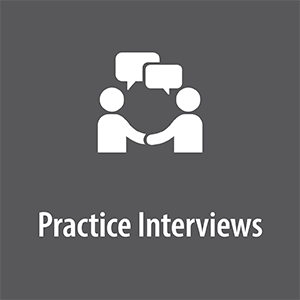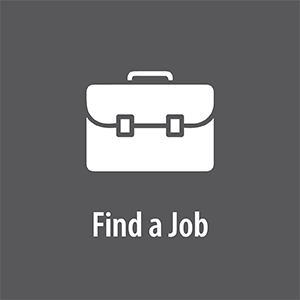 Skills
SkillsIn order to market your skills to a potential employer, you must first know them yourself. Another way to think of your skills is in terms of your gifts, talents, and abilities. A skill that you can use in a variety of settings is called a functional or transferable skill. You may have used Functional skills in different jobs, for classroom projects, and/or during volunteer or leadership activities. For example, you might have learned to work effectively as part of team through a class project, in your job, or in your department’s club or organization. You take your functional or transferable skills with you when you transition from college to your new job or from job to job. When you are describing your transferable skills use Action Verbs to explain your skills and experiences to potential employers.
Adaptive skills are the basic skills necessary to obtain or keep a job. You may have also heard them called soft skills. They include interpersonal and social skills that are vital to a positive working environment. Your personal attributes, interaction with others, and attitude will either reflect positively or negatively on your employer. To communicate your adaptive skills to potential employers use adverbs to describe your skills.
Content skills are the special knowledge or technical abilities that you possess. Use nouns to describe your work content skills.
Transferable Skills = Action Verbs. Ex: organized, explained, prepared
Adaptive Skills = Adverbs. Ex: neatly, politely
Content Skills = Nouns. Ex: files, procedure, reports
Assessing Skills
A career consultant can meet with you to help you identify your skills. As you begin this process ask yourself the following questions.
- What skills/traits would I like to develop or improve?
- Are there skills I would like to attain in order to move toward my final goal?
- What are my strongest and most useful skills?
- What are other skills/traits that could help me in my job?
- What skills/traits do others tell me that I have?
Communicating Skills
Your cover letter, resume, and interview all represent opportunities to market your skills to potential employers. Here are a few examples of how you can do communicate your skills in your cover letter, resume, and interview.
Cover Letter Example:
You are looking for someone with strong computer skills, as well as an understanding of finance. With a Bachelor’s degree in Management Information Systems and a minor in Finance, I am confident that my skills are a match to the skills you desire.
You are looking for someone with strong computer skills, as well as an understanding of finance. With a Bachelor’s degree in Management Information Systems and a minor in Finance, I am confident that my skills are a match to the skills you desire.
Resume Example:
Highlight of Qualifications
Highlight of Qualifications
- Extensive experience in working with others in team settings.
- Able to organize and prioritize important tasks to ensure projects are completed without error and in a time efficient manner.
- Communicate well with others through written and verbal correspondence.
Interview Example:
To explain your skills in an interview you first need to listen to the question, then you should describe your skills in a story to answer the question. In the story you should:
To explain your skills in an interview you first need to listen to the question, then you should describe your skills in a story to answer the question. In the story you should:
- Briefly describe the situation
- Tell what specific actions you took
- Explain the results or outcome
Question: How can you contribute to our organization?
Answer: I have developed my leadership skills by serving as the chapter president of my fraternity. In that role, I was given the responsibility of managing our weekly chapter meetings. I used that opportunity to learn how to conduct a business meeting. By the end of the semester we were organized enough that we were able to shorten the time of our meetings by 10 minutes.
Answer: I have developed my leadership skills by serving as the chapter president of my fraternity. In that role, I was given the responsibility of managing our weekly chapter meetings. I used that opportunity to learn how to conduct a business meeting. By the end of the semester we were organized enough that we were able to shorten the time of our meetings by 10 minutes.







